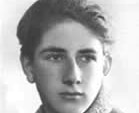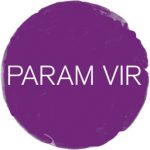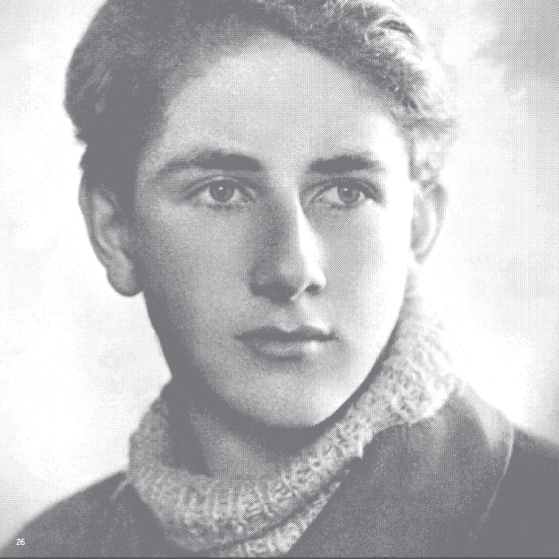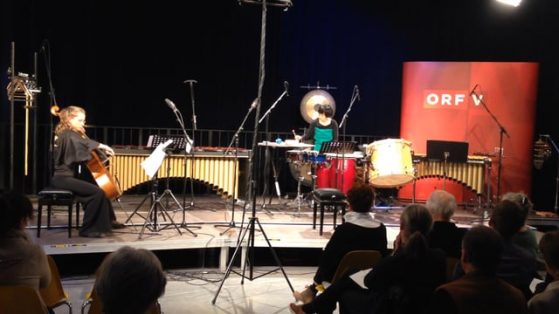…beyond the reach of the world…
(Version for Cello and Percussion Duo)
LINK TO: Link
YEAR: 2009
ORCHESTRATION: Violoncello and Percussion
DURATION: 17'
COMMISSIONED BY: Woodend Arts Association with funding from the Scottish Arts Council
DEDICATION: To my friends
AVAILABILITY: Contact the Composer.
PREMIERE DATE: November 14, 2009
PREMIERE INFORMATION:
INTRODUCTION:
WORK for CELLO AND PERCUSSION
This is really two works in one: it can be performed as a duo for cello and percussion (17 minutes), or as a version for solo cello (16 minutes).
The cellist Rohan de Saram initiated the idea for me to write a work for Cello and Percussion, with a second version just for solo cello. The addition of the percussion (marimba, drums, other instruments) has afforded me the opportunity to look at the same musical material from a new standpoint and create an ‘enlarged’ version. The duo version lasts somewhat longer than the solo version.
Projection of two further versions: In the slightly more distant future, I see a possibility of yet another version of the work: cello with flute, and cello with live electronics, perhaps with a view to a much larger work for multi-media involving additionally voice, a second cello, electronics and film/video projection.
This work is inspired by the writings of Kim Malthe-Bruun (1923–1945), a Danish seaman who was active in the Resistance during the Second World War. His partisan activities led to his arrest by the Nazis, who subsequently tortured him and sentenced him to death. During his period of incarceration Kim kept up a remarkable diary in the form of smuggled letters to his family. These imaginative texts are full of courage, hope, and compassion. But some also open a window into the grim reality of torture, a reality that to this day stalks the world.
Kim’s writings show his endless capacity for vision, and the immense inner resources he summoned to find a way to transcend his brutal experience. The text that inspired my composition was scribbled on paper in microscopic handwriting and only discovered when freedom fighters were clearing out the prison cells after the German capitulation. We know from the accounts of witnesses in the prison that this testimony must have been written in the aftermath of a particularly serious incident when he was brought back to his cell unconscious after having been tortured.
My work is a Meditation in two parts: a fast movement and then a slow one. The first relates to images of aliveness and childhood memory that Kim brought to the surface of his mind through drawings on the walls of his cell, to counter the after-effects of torture. The swift energetic lines express this exuberance and joyfulness in life as he had once known it and then expressed in his line drawings. The second quieter movement relates to the experience of transcendence, a ‘wild and soaring freedom beyond the reach of the world’, where he would no longer be capable of suffering.
PV
A key text is reprinted below, and speaks for itself.

Extract from Kim Malthe-Bruun’s Diary
(from his Diary and Letters 1941-1945, edited by his mother Vibeke Malthe-Bruun)
On February 5 Kim was sent to the camp at Froeslev together with some other prisoners. In the meantime the Gestapo had obtained new evidence against him. Upon his arrival at Froeslev his name was called out and he was placed in solitary confinement. Three or four days later he was sent back to Vestre Prison.
When they were clearing out the prison after the German capitulation, one of the resistance fighters found a letter which Kim had received from Nitte [his aunt] toward the end of February. On the back of this letter he wrote the following, probably to give vent to his feelings, never thinking that it would ever be read. The entire sheet was covered with microscopic writing, possibly continued elsewhere or was to be continued, because “as you” was squeezed in the lower right-hand corner of the page. At any rate, the rest has never been found. From witnesses inside the prison we know that Kim was brought back to the cell unconscious, after having been tortured.
3 March 1945
Yesterday I was sitting at the table. I looked at my hands in amazement. They were trembling. I thought about it for a moment. There are some things which produce a purely physical reaction. Suddenly, as I was sitting here, I was possessed by the desire to draw something. I got up and started to sketch on the wall. I was fascinated and became more and more absorbed. Under my hand suddenly appeared a farmer, standing by a barbed-wire fence. I sat down, got up and made some changes, sat down again and felt much better. This was much better than anything I’d ever done before. All day I worked on it. There were so many things which I couldn’t make come out the way I wanted them to. I studied it, stretched my imagination to the utmost and was suddenly completely exhausted. I erased all of it and since then even the idea of drawing makes me sick.
I’ve been thinking about this strange experience a good deal. Right afterwards I had a wonderful feeling of relief, a sense of having won a victory and such intense happiness that I felt quite numb. It seemed as if body and soul became separated, one in a wild and soaring freedom beyond the reach of the world, and the other doubled up in a horrible cramp which held it to the earth. I suddenly realized how terrifically strong I am (but perhaps I only tried to talk myself into this). When the body and soul rejoined forces, it was as if all the joys of the world were right there for me. But it was as with so many stimulants; when the effect wore off the reaction set in. I saw that my hands were shaking, something had given inside. It was as if there had been a short circuit in the roots of my heart which drained it of all strength. I was like a man hungry for pleasure and consumed by desire. But still I was calm and in better spirits than ever before.
Although I feel no fear, my heart beats faster every time someone stops outside my door. It’s a physical reaction although it’s caused by a sensory perception.
Right afterwards I realized that now I understand something else about Jesus. It’s the period of waiting that is the real test. I’m sure that to have a few nails driven through one’s hands and to die on a cross is only a physical ordeal; the spirit is in a state of elation which can’t be compared with anything else. But the period of waiting in the garden causes red blood to flow.
Strange, but I didn’t feel any resentment or hatred at all. Something happened to my body, which is only the body of an adolescent, and it reacted as such, but my mind was elsewhere. It was aware of the small creatures who were busying themselves with my body, but it was in a world of its own and too engrossed to pay much attention to them.
I’ve learned something by being alone. It is as if I’d reached rock bottom in myself, which usually can’t be seen for all the layers of egotism, conceit, love, and all the ups and downs of daily life. It is this which makes me feel as if I’d had a short circuit within me. When I’m with other people, their interests, their conversation, act as a balm, covering the rock bottom in myself with a warm compress. When I’m alone, it is as if layers of skin were being scraped away. Your mind is not at ease, you can’t concentrate on reading, the spirit as well as the body must keep on pacing up and down. I suddenly understood what insanity must be, but I knew that this was like everything else which has happened to me, and in a couple of days I’ll be myself again.
Sometimes a beautiful scene flashes before my eyes, but none of you are in it. I see myself riding on horseback out in the fields. But I must have children around me, not adults. I’ve been longing for the sea, but it has to be calm, because I couldn’t stand being seasick at the moment. It was funny seeing that horse; it brought my whole childhood back again.
The Herald (Scotland) (14 November 2009)
Reviewer: Alan Cooper
… The final written composition in the recital was a world premier. The composer Param Vir was present to introduce his new work which was inspired by a letter left behind by a Danish resistance fighter who was tortured and executed by the Nazis. In this piece, the talents of Rohan and his son Suren were brought together. The piece itself lay somewhere between Bach and Sciarrino, having elements of both the traditional and the avant-garde. Param Vir had these closely and convincingly woven together in his music. Cello and percussion are not the two most compatible sound worlds that a composer would think immediately of bringing together. However Param Vir has achieved this with startling brilliance by making the cello play percussively, the bow striking the string with a sharp rap, while the percussionist is made to use a bow to play the bars of the metallophone or the little bell chimes always perfectly matching the notes played by the cello. The ominous raps of the cello bow were quite striking. Did they represent the ticking of the clock as the Danish prisoner sat in his cell waiting for the next time his torturers would come to fetch him for another session? …



